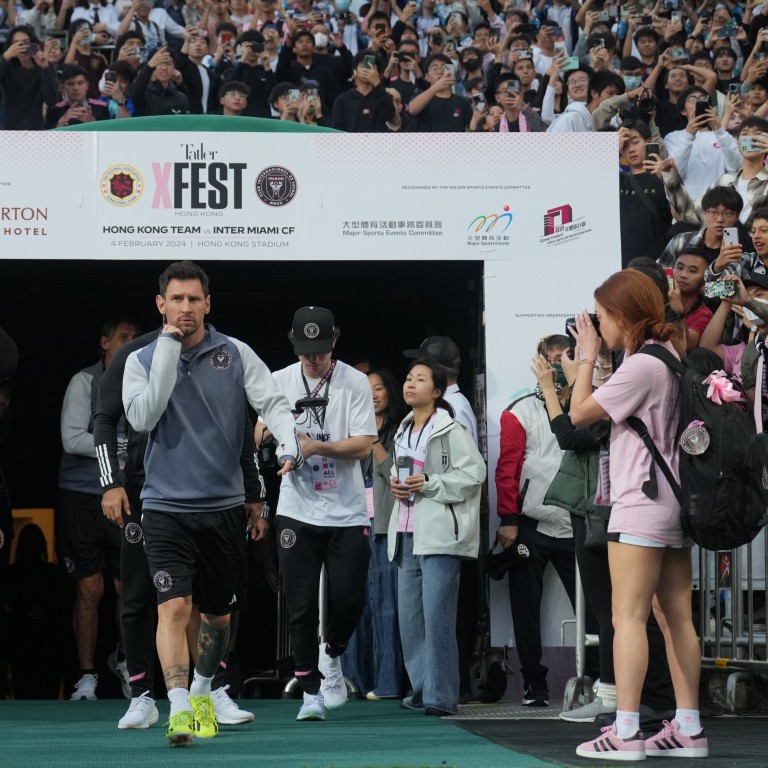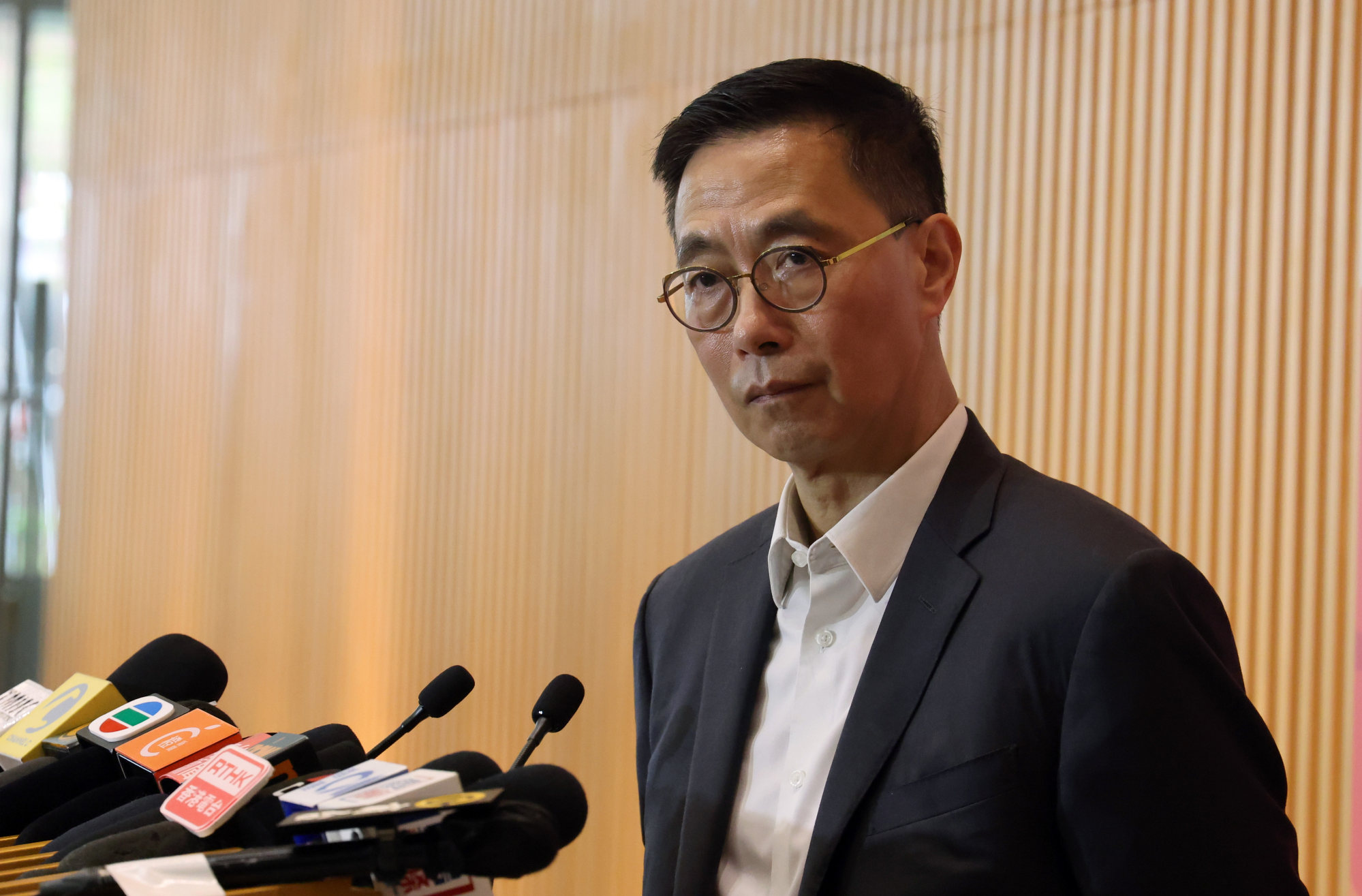
Lionel Messi row sparks review of government handouts to support major sporting events; to be completed by third quarter of year
- Examination of grants system, set up to back big events, was ordered in wake of row after football star Lionel Messi no-show in city friendly match
- But Secretary for Culture, Sports and Tourism Kevin Yeung warned against tough terms that could deter potential promoters of prestige events
But Kevin Yeung Yun-hung, the culture, sports and tourism secretary, warned at a Legislative Council meeting on Wednesday against tough contract terms which might deter promoters of prestigious money-spinners for the city.
He emphasised the importance of a “balanced approach” to ensure organisers stuck to contracts, but said the rights of private enterprise should be respected.

Messi’s no-show forced promoter Tatler Asia to withdraw its application for HK$16 million (US$2.04 million) in government sponsorship for the event in the face of public outrage and official pressure.
Lawmaker Paul Tse Wai-chun told the Legco meeting that the government granted Tatler Asia the cash under the “M” Mark system for major events without asking to see its contract with Inter Miami and questioned whether the government had shackled itself as a result.
He added that the government should have a more transparent disclosure system to the legislature for information on projects that involved significant public interest and money.
“Legco should play the role of the supervisor of the government, but if the government uses ‘commercial secrets’ as their ‘golden shield’ every time to refuse our access to information, how can we play this role?” Tse said.
“Shouldn’t there be a mechanism with confidentiality agreements for us to review the amount of funds spent on these events, to allow Legco to exercise its power?”
Yeung replied: “The government will actively provide information to Legco to answer your queries, including about our financial expenditure.
“Some partnerships are commercially sensitive but some contracts might allow a third party to view under some circumstances.”
Yeung added the “comprehensive review” on the vetting and monitoring of the “M” Mark system would be completed in a few months.
‘It was bad luck’: Messi breaks silence after no-show in Hong Kong game
Lawmaker Michael Tien Puk-sun asked if the government would consider a requirement for promoters to publicise in their marketing contract terms information such as the fact Messi was obliged to play for 45 minutes unless he was injured.
He also queried whether the government would include counter-escape clauses in future contracts with event organisers.
“For example, the counter-clause should state that unless that person is hospitalised or cannot stand, they have to come out and be accountable to the public,” Tien said.
But Yeung insisted some factors could not be controlled by the government and warned against complicated terms which might deter potential promoters and flood the public with too much information.
“We do not wish to assume the organisers will make mistakes and take preventive measures for every possibility of things going wrong,” Yeung said.
“Would these cause interested parties to back off in fear of the terms? We would have to take a balanced approach.”
The friendly between a Hong Kong XI and Inter Miami at Hong Kong Stadium earlier ended with boos and demands for refunds after Messi, who had featured heavily in promotion for the game, failed to play.
The Major Sports Events Committee, a government advisory body, had earlier given the game “M” Mark status – a major sporting event eligible for official backing and funding.
No politics involved, Lionel Messi says in defence of Hong Kong no-show
Tatler Asia, was awarded HK$15 million towards the cost of the match and a HK$1 million venue subsidy.
The “M” Mark system, launched in 2004, was designed to give support to some of the city’s biggest sporting events, including the Cathay Pacific/HSBC Hong Kong Sevens rugby tournament, the Standard Chartered Hong Kong Marathon and the Hong Kong International Dragon Boat Races.
The Inter Miami fiasco triggered an international incident, especially after Messi took to the field just days after he left the city for a match in Japan.
Messi on Monday tried to cool national anger over his decision to stay on the bench for the Hong Kong match in a two-minute video on Chinese social media platform Weibo.
He said speculation that politics was behind the apparent snub was unfounded and that he hoped to meet his Chinese fans in person again.
The video came after the Beijing Football Association said on February 10 that it had “no plans at the moment to host any matches involving Messi”, despite a match between the Argentina national squad and Ivory Coast being scheduled for next month.
The Hangzhou Municipal Sports Bureau earlier announced the cancellation of a fixture between Argentina and Nigeria for reasons “known by everyone”.

